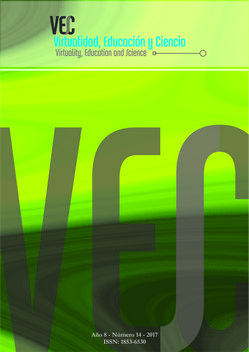The teaching-learning process in ubiquitous and university contexts. Three case studies
DOI:
https://doi.org/10.60020/1853-6530.v8.n14.17340Keywords:
Informal learning, social networks, gamification, foreign language, adaptabilityAbstract
In this article, we aim to identify the components of the learning-teaching process for foreign languages that better adapt themselves to different teaching environments (face-to-face and online) with the objective of observing how the optimization of different methodological strategies can result in the optimization of learning. Likewise, we will identify some of the learning environmental constructions that have been carried out in a completely "online" environment (Universidade Aberta) as well as in a face-to-face but digitally enriched context (Universidade Católica Portuguesa).In this way, we propose a methodological design based on the adaptability of both the cognitive components of the students and the context in which learning takes place. It is committed to the diversification not only of contents, but also of the different ways of understanding learning.Downloads
Published
2017-06-26
Issue
Section
Innovation and Experiences
License
The generation of derivative works is allowed as long as it is not done for commercial purposes. The original work may not be used for commercial purposes.
How to Cite
The teaching-learning process in ubiquitous and university contexts. Three case studies. (2017). Virtuality, Education and Science, 8(14), 123-135. https://doi.org/10.60020/1853-6530.v8.n14.17340


